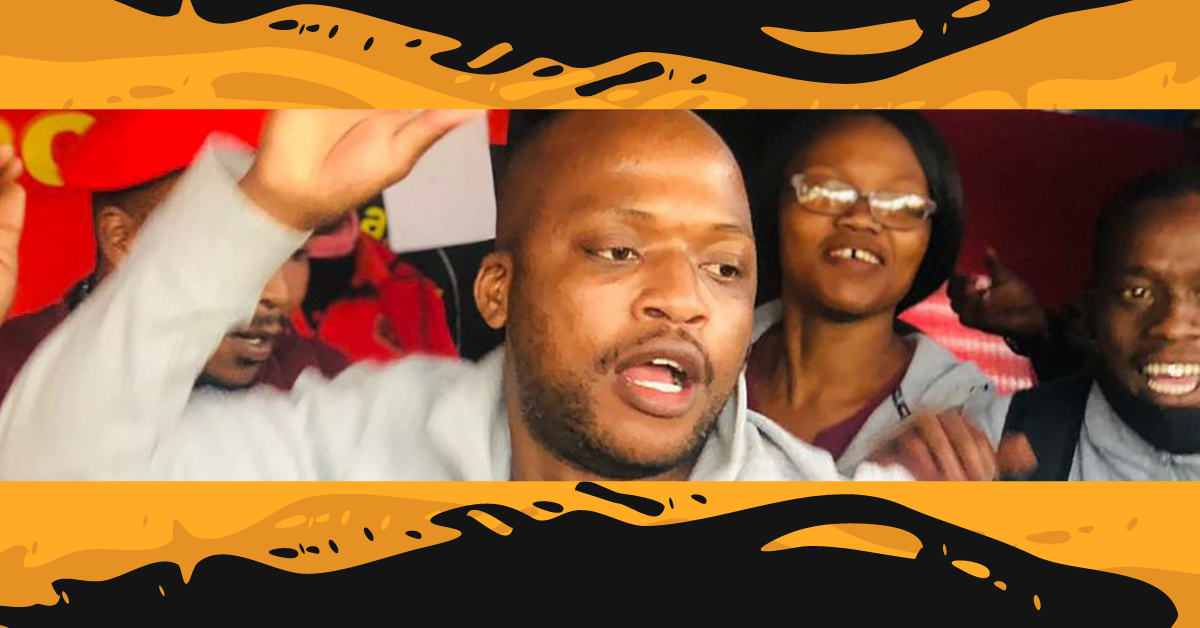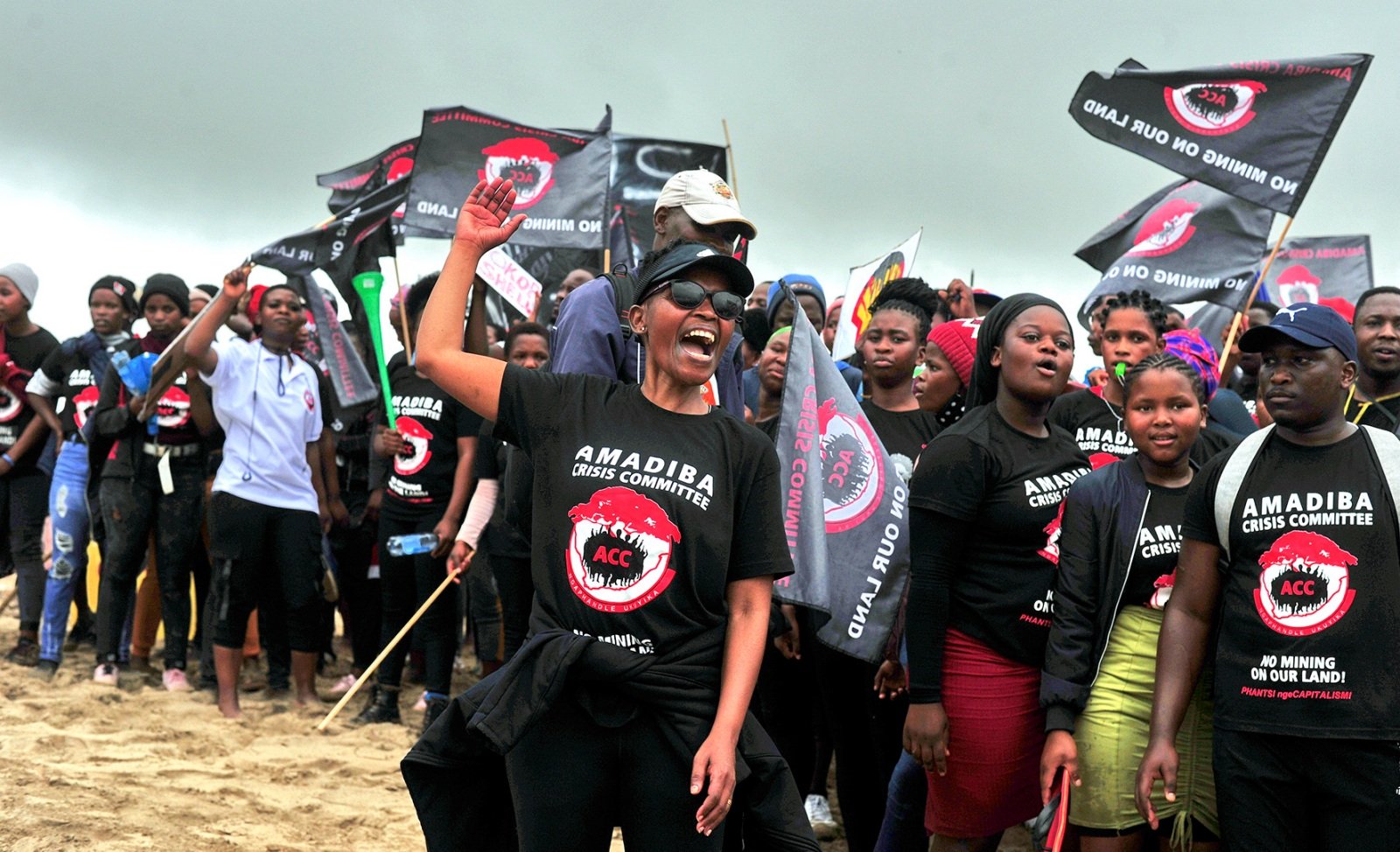What Right Do We Have to Avoid Risk When Movement Leaders Face Death for Daring to Make Change?

Guest post by Zahra Dalilah, former African Diaspora Partnerships Manager
“Everyone who accepts a position of leadership in our movement has to accept the possibility of death.”
– Press Release, Abahlali baseMjondolo
Abahlali baseMjondolo (AbM) is a shack dwellers movement in South Africa. These words were written days after the assassination of one of their leaders, Ayanda Ngila.
These past weeks Ayanda’s neighbors and comrades have mourned “a brave, brilliant and committed young man, a visionary leader, a shining inspiration.” Ayanda was the chairperson of the eKhenana Commune, a hugely impressive housing settlement operating as a democratically run commune and farm.
Over the past three years, the site has seen the development of a community hall, a co-operative managed farm with vegetables and poultry, a school for political education, social spaces for children and young people, self-organized access to services such as water and electricity and a self-built road. Murdered in broad daylight as he tended to the communal garden, Ayanda was assassinated “wearing a Steve Biko T-shirt with the writing ‘It’s better to die for an idea that is going to live than to live for an idea that is going to die’”.
AbM’s statement that leadership in their movement risks death is not an exaggeration. A self-proclaimed ‘pro-poor’ movement with over 100,000 members, AbM was born in 2005 out of the fundamental need for shelter from which residents, then of the Kennedy Road settlement, were being evicted. Whilst providing housing to those failed and neglected by the state who would otherwise be landless and homeless, AbM is rooted in a bold political ideology which rejects the capitalist nation-state model of society. Their existence is a direct threat to a government that upholds extractivist, capitalist economic structures and therefore relies on their capacity to exploit and privatize land for profit. Deeper still, such governments will ensure, by any means necessary, that its constituents buy into both capitalism and the legitimacy of the power of the nation state. Meanwhile, AbM renders such paradigms irrelevant.
The risk they take by committing to their ideals of land, housing, dignity and socialism are immense. Since their founding AbM say more than 20 of its leaders and prominent members have been assassinated. Ayanda himself had already served six months in prison awaiting trial and repeatedly denied bail before returning to lead the commune. His case was eventually dropped due to ‘weak evidence’. The repression of the eKhenana Commune has been relentless, with reports of homes being burnt down, women assaulted by police, illegal evictions and an endless cycle of arrests and releases.
Beyond eKhenana and Abahlali baseMjondolo, we continue to see the criminalization of dissent pushing movements to take even greater risks simply for demonstrating, defending land or waters or resisting extractivism.
AbM consistently celebrates the solidarity they receive from all over the country, Africa and the world. But what does showing solidarity to movements like theirs look like in philanthropy?
To truly honor the risks taken by social movements – we need to take some too. What about funding (more) social movements who are meeting the material needs of their community and have an explicit political position? What would it look like to innovate our philanthropic practices and support by enabling the fast release of grants to tend to emergent crises such as security threats? Would it be risky? Maybe. Would it require organizational transformation on some level? Probably. Would it be worth it? I’ll let you decide.
Often it is the boldest, most daring movements with the capacity to make the most radical, impactful and healing change are those which are perceived as the highest risk to fund. Perhaps, they are not operating within your borders or not registered in a format that you can fund. Furthermore, if iced out by their governments, they may struggle to access financial institutions without fiscal sponsorship or to get insurance on their assets. For security reasons they might not always be able to share as many details a philanthropic institution might like, they could be working in remote areas that are not always appropriate for regular visits, or in countries that are isolated on the global stage, bringing in a host of complications when it comes to financial transfers.
All of this might pull an institution into a space of unknowns, which might feel scary, overwhelming, vulnerable. As a result, many won’t try and will continue to play safe and fund the most palatable risk-averse versions of change. Meanwhile, humanity continues to grapple with multiple and evolving crises. Changes to the climate and ecological balance of the earth continue, cyclones in Southern Africa intensify, as do floods in Brazil, hurricanes and earthquakes in the Caribbean. Rising inflation makes the cost of living unattainable for the global working class and while some celebrate a perceived end to the pandemic, Hong Kong runs out of coffins to bury the dead. Bleak a picture it may be, but we must reckon with the reality that in our current ecological and social environment – the greatest risk is business as usual.
So one last question: who are you putting at risk every day that you delay taking one?
Related Stories



